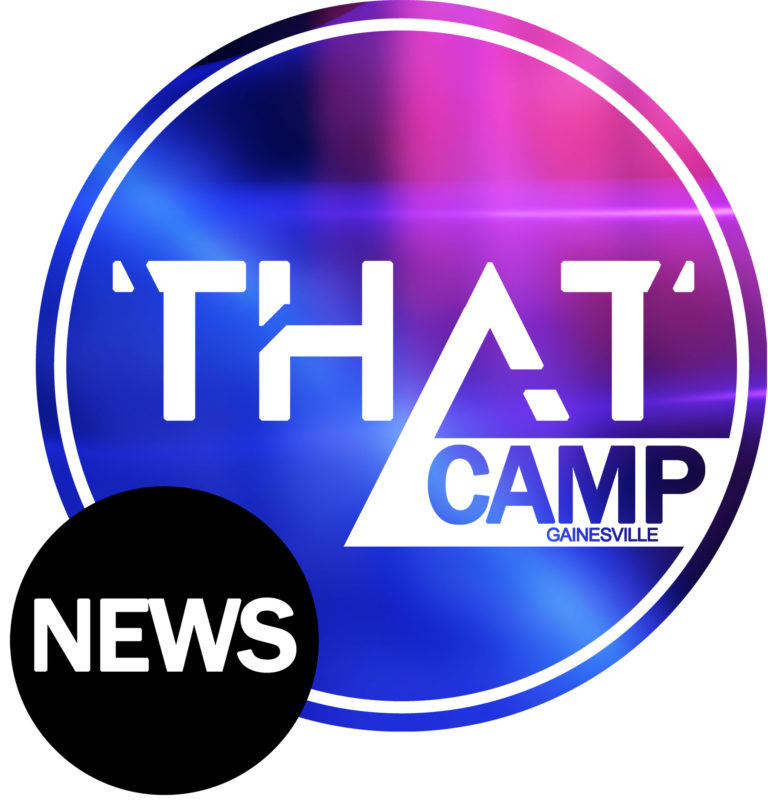
Over the past several years, UF has collaborated with others in Gainesville to host a THATCamp-Gainesville event. “THATCamp” is The Humanities And Technology Camp, and it is an unconference: an open, inexpensive meeting where humanists, technologists, educators, archivists, and folks from many different backgrounds and fields come together to learn together, and to make connections for future collaborations. We have changed the format for THATCamp-Gainesville over the years in terms of duration, location, and structure. THATCamp-Gainesville also began as a different event, Digital Humanities Day.
THATCamp is an opportunity for anyone in the UF and Gainesville communities with an interest in culture and digital technologies to come together, share their work, and learn new skills for building and analyzing digital projects across the humanities. It is also a chance to build connections between digital humanities projects across North Florida. And, if you don’t know what the ‘digital humanities’ are, then come find out. Please visit the conference website to register, suggest a session proposal, comment on the session proposals made by others, and generally learn more about this event.
This year the format of THATCamp has evolved. Organizers hope that THATCamp will become a thematic event connected to and cross-promoting another conference. THATCamp-News will be 9:30am-12pm on 17 April (Tuesday), the morning before the IFLA International News Media Conference, a separate event which THATCamp-News participants are encouraged to also engage with.
Schedule:
- 9:15-9:30am: Registration, Welcome and opening remarks
- 9:30-10:30am: Lightning talks (6-7 minutes each)
- #NoLaIBCita
- #NoNazisAtUF organizers
- Patrick Daglaris: Digital preservation through oral history.
- April Hines on methods/uses of UF’s digital newspaper databases by students, challenges, barriers, usability, etc.
- Melissa Jerome: Digitization of the Alligator
- Patrick Reakes on the implications of copyright on news digitization
- 10:30-11am: Breakout discussion
- 11am-11:15am: Break
- 11:15am-12pm: TEI Workshop, with Dr. Megan Daly
- 12pm: Event ends. Time is open for lunch in groups, find friends and meetup!
All presenters will share on topics related to news and preservation. We expect several presentations to be on digital/digitization of newspaper projects, including on research using digitized news.
- To register, visit: http://news2018.thatcamp.org/
- Questions about THATCamp in general for the formats and varieties? See the main THATCamp.org site and post questions on the THATCamp forums and someone from the community will reply within a couple of days.
- This event is free and open to members of the public who work in cultural heritage institutions or the technology sector.
- THATCamp Gainesville is organized by a planning committee of the UF Digital Humanities Working Group (DHWG), a group of academic and library faculty, staff, and graduate students who meet monthly to discuss current topics at the intersection of digital technologies and the humanities and support each other in project development. For more information on the Digital Humanities at UF and to join the DHWG, visit https://digitalhumanities.group.ufl.edu/